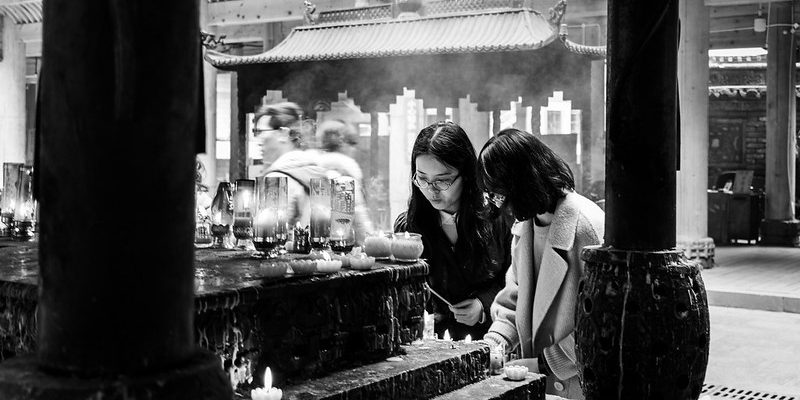By Editor
Religion and spirituality are a crucial part of life, culture and politics in contemporary China. In spite of often brutal attempts at eradication during the Cultural Revolution (1966-1976), many different kinds of religion and spiritual practice have been revived and have thrived since the late 1970s. Religion, however, remains an important political issue, often seen as a potential challenge to the authority of the atheist ruling Chinese Communist party.
In our second issue, we discuss faith, spirituality and religion in contemporary China. We asked our contributors to reflect on the politics of spiritual and religious belief and practice in China. Pieces in this issue cover a wide range of issues around this topic, including Buddhist generosity in northeastern Tibet, migration and identity among the Hui, Protestant naming practices and charity, philanthropy and social well-being.
In our first piece, Jane Caple examines religion and economy in Tibet. She considers what the wave of new religious construction, escalating levels of expenditure on rituals and the sponsorship of monastic events in northeastern Tibet (Amdo/Qinghai) might tell us about conceptions of wealth, virtue, and the social good among those Tibetan communities in China experiencing break-neck socio-economic development as well as political uncertainty.
In the second piece, Mark McLeister discusses the power of Protestant names in China. He describes the ways in which Protestant adherents often choose recognizably ‘Christian’ names for themselves and their children, and argues that this reflects a conscious choice about religious identity and aspirations for their children.
Piece three, written by David Stroup, discusses urbanization, migration and the everyday practice of Hui identity. Focusing on faith and religious practice, Stroup describes how Hui migrants often feel forced to decide between maintaining tradition and meeting the demands of the usually marketized, secularized, Han-dominant local culture, and how these experiences can forge new understandings of what it means to be Hui.
In piece four, Ting Guo reflects on her journey of majoring in Religious Studies as an undergrad in China before pursuing further studies abroad. She discusses diffused religion, global religions and the importance of changing contexts in understanding religion in China.
In the final piece, Caroline Fielder examines religious charity and philanthropy in contemporary China. Focusing on the rise of religiously inspired charitable organisations (RICOs), Fielder argues that RICOs present us with a particularly interesting lens through which to explore developments in wider Chinese society.
Image credit: Flickr
- TV Drama Discourse on Stay-at-home Fathers in China: Super Dad & Super Kids - January 28, 2022
- Freud and China - January 20, 2022
- “Cultural China 2020″—A Different Take on China - January 7, 2022
